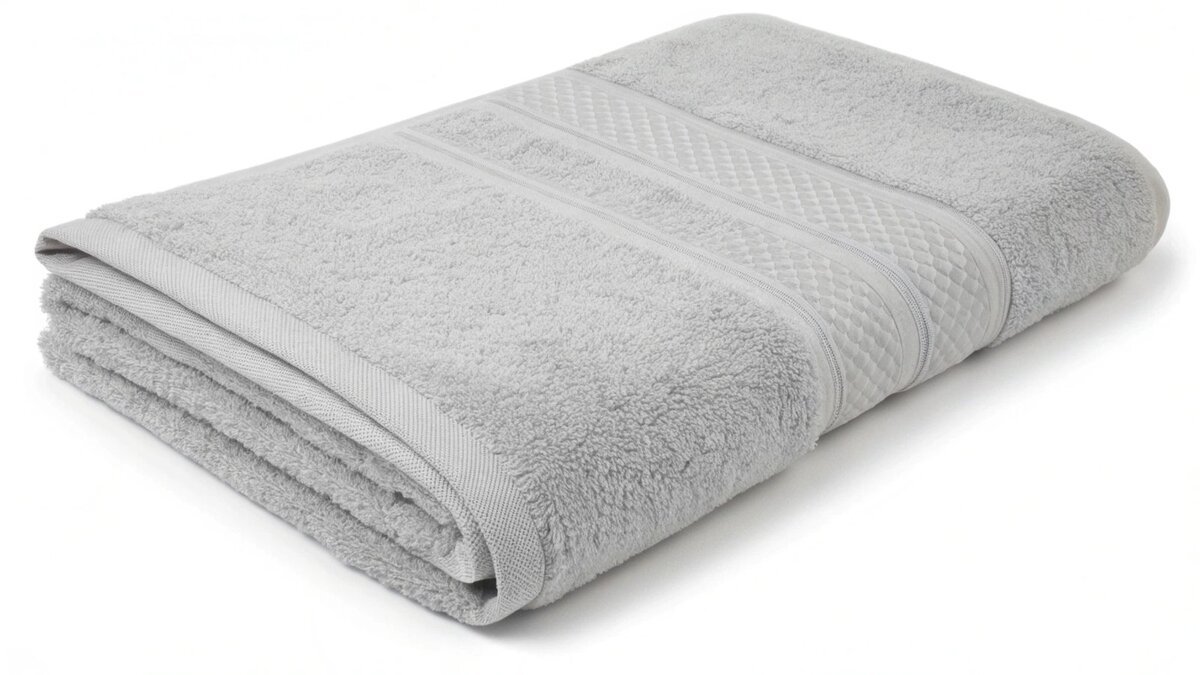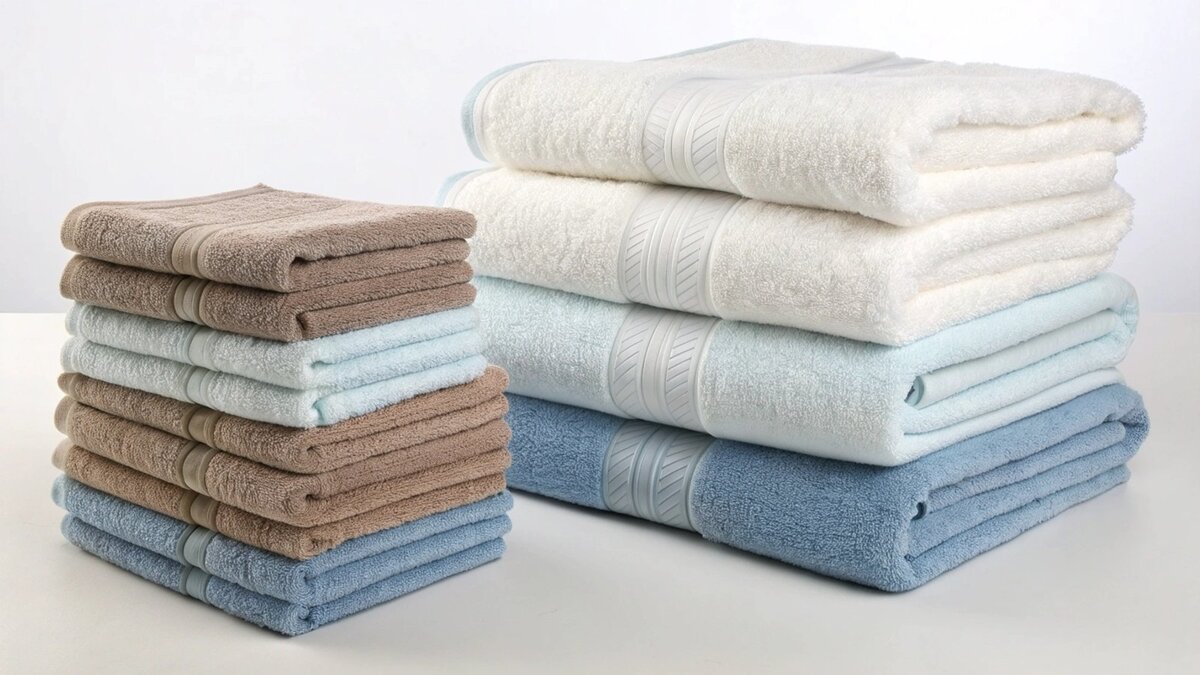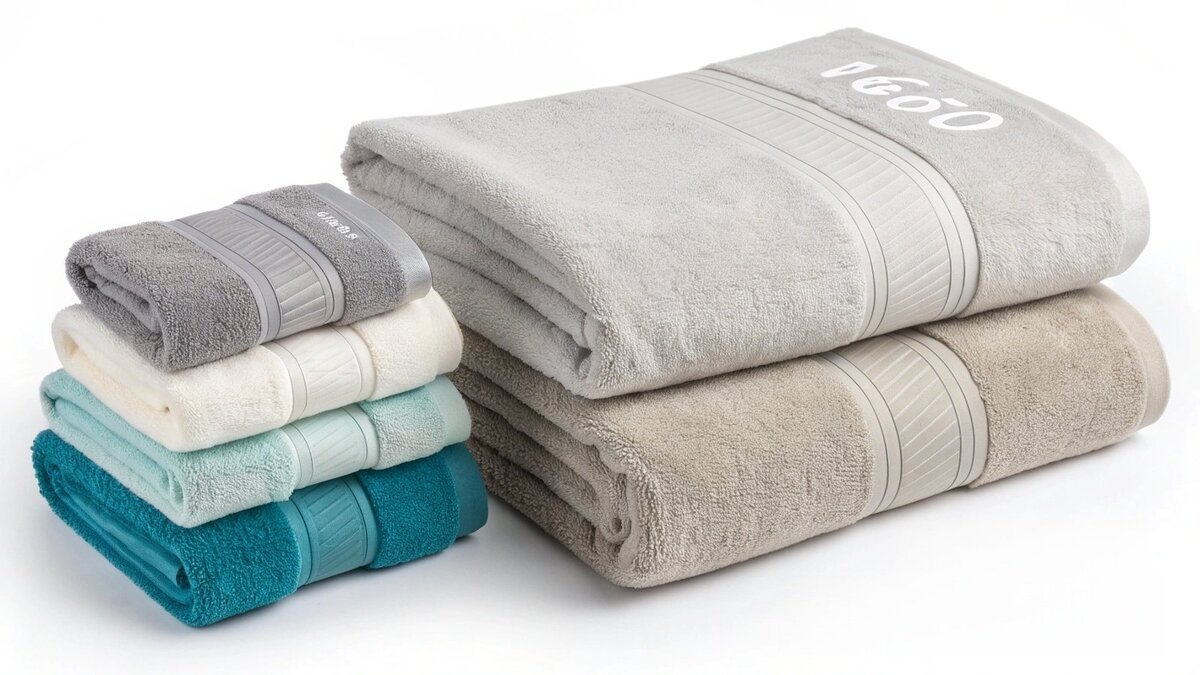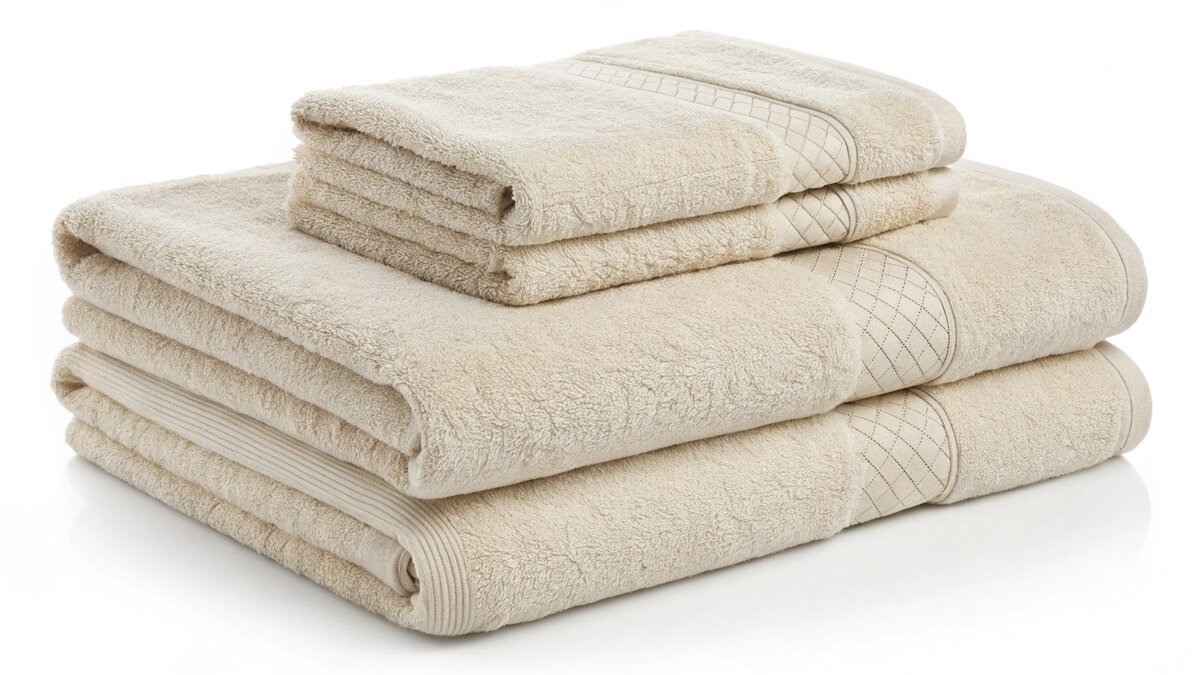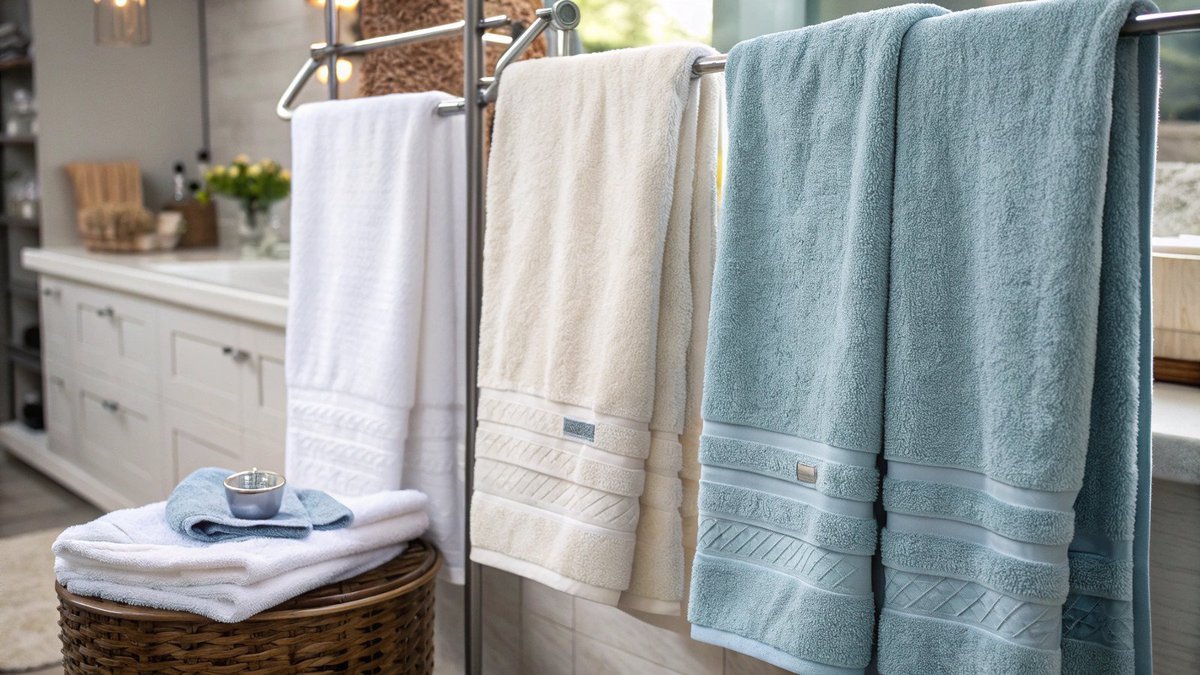Are you confused by towel weights and how they affect your product’s quality and cost? Choosing wrong can lead to flimsy towels or high shipping fees. I’ll explain it simply.
A standard bath towel, about 27 by 52 inches, usually weighs between 1.25 and 1.5 pounds (or 500 to 700 grams). This weight comes from its GSM (Grams per Square Meter), a key measure of a towel’s density, quality, and potential shipping cost.
The weight of a towel is more than just a number on a spec sheet. It tells you about its absorbency, how it feels, and how long it will take to dry. As a manufacturer, I know this number also directly impacts your shipping costs, especially for international orders. Understanding this detail is the first step to making a smart purchase. So, let’s dig into what these weights mean for your brand and your customers.
What is the average weight of a towel?
Trying to find a "standard" towel weight for your product line? It can feel like a guessing game with so many options. Let’s define the average weights to give you a clear guide.
The average weight depends on the towel’s type and purpose. A standard bath towel averages 500-700 grams. A smaller hand towel is about 150-250 grams, while a large, plush bath sheet can weigh over 800 grams. The "average" is all about its job.
There isn’t one single "average" weight for all towels, because towels have different jobs. A light, quick-drying gym towel is very different from a thick, spa-like bath sheet. When I work with brands at TowelTrend, the first thing we discuss is the towel’s intended use. This helps us decide the right weight. For most brands creating a main bath towel line, we find the sweet spot is around 600 grams. It feels substantial and luxurious to the customer but isn’t so heavy that it becomes expensive to ship or slow to dry. Remember, a heavier towel holds more water and costs more in DDP (Delivered Duty Paid) shipping. It’s all about finding the right balance for your target market.
Here is a simple table to show typical weight ranges.
| Towel Type | Common Dimensions (inches) | Average Weight (grams) | Average Weight (lbs/oz) |
|---|---|---|---|
| Washcloth | 13 x 13 in | 50 – 80 g | 1.8 – 2.8 oz |
| Hand Towel | 16 x 30 in | 150 – 250 g | 5.3 – 8.8 oz |
| Bath Towel | 27 x 52 in | 500 – 700 g | 1.1 – 1.5 lbs |
| Bath Sheet | 35 x 60 in | 700 – 1000 g | 1.5 – 2.2 lbs |
How many towels make a pound?
Are you planning your shipping and storage needs by the pound? Calculating this can be tricky, especially with different towel sizes and densities. Here’s a simple way to figure it out.
This depends completely on the towel’s individual weight. You might get 8-10 washcloths in one pound. But a standard bath towel often weighs more than a pound by itself. So for those, you would get less than one towel per pound.
This question is extremely important for logistics and cost planning. A pound is equal to about 454 grams. You can use this number to figure out exactly how many towels you get per pound. This calculation is vital when you’re estimating shipping costs, which are often priced by weight.
For a Standard Bath Towel
Let’s use a 600-gram bath towel as an example. This is a popular, high-quality weight.
The math is: 454 grams (1 lb) / 600 grams (towel weight) = 0.76.
This means you get less than one full towel in a pound. To put it another way, one towel weighs about 600 / 454 = 1.32 pounds.
For a Lighter Hand Towel
Now, think about a 200-gram hand towel.
The math is: 454 grams (1 lb) / 200 grams (towel weight) = 2.27.
So, you get just over two hand towels in one pound.
I always run these numbers with my clients. It’s crucial for our factory-to-door DDP shipping service. A small change in towel weight can have a big impact on the total carton weight, which changes the final cost per unit.
How to calculate the weight of a towel?
Do you have the towel’s dimensions and GSM but not its final weight? This missing number can complicate your shipping quotes and cost analysis. I’ll give you the exact formula to calculate it.
The formula is: Towel Weight (in grams) = Length (in meters) x Width (in meters) x GSM. You must convert dimensions from inches to meters first. This formula gives you the precise weight of any towel before it’s even made.
I use this calculation daily when creating technical specifications for a new towel order. It is surprisingly simple and helps us predict the final product’s weight and cost with great accuracy. Let’s walk through it with a real example. Imagine you want to produce a standard bath towel.
Step 1: Convert Dimensions to Meters
Most specs are in inches, so we need to convert them to meters. The conversion is: 1 inch = 0.0254 meters.
Let’s say your towel is 27 inches wide and 52 inches long.
- Width in meters: 27 inches * 0.0254 = 0.6858 meters
- Length in meters: 52 inches * 0.0254 = 1.3208 meters
Step 2: Calculate the Towel’s Area
Now, multiply the width and length in meters to find the total surface area in square meters (m²).
- Area: 0.6858 m * 1.3208 m = 0.9058 m²
Step 3: Apply the GSM
Let’s say you want a towel with 600 GSM (grams per square meter). Now you just multiply the area by the GSM.
- Final Weight: 0.9058 m² * 600 g/m² = 543.5 grams
This tells us the finished towel will weigh about 544 grams. Now you have a solid number to use for shipping quotes and production costing.
What is a good weight for a towel?
Are you feeling overwhelmed by weight options like 400, 600, or 800 GSM? Choosing the wrong one can lead to unhappy customers or an unsuitable product. Let’s define what makes a towel weight "good."
A "good" weight depends entirely on the towel’s job. 400-600 GSM is great for everyday bath towels—absorbent yet quick-drying. 600-900 GSM offers a luxury, spa-like feel but is heavier and dries slower. Lighter weights are for gym or kitchen use.
The term "good" is subjective; a better word is "appropriate." The right weight matches the towel’s purpose with the user’s expectation. A brand selling to high-end spas will choose a different weight than a brand making towels for a gym chain. At TowelTrend, we guide clients through these choices all the time. A common mistake I see is assuming heavier is always better. An 800 GSM towel feels amazing, but it can take a full day to dry in a humid bathroom, which leads to mildew and bad reviews. For most direct-to-consumer brands, a 550 to 650 GSM bath towel is the perfect balance. It delivers that premium, absorbent feel customers want without the practical issues of a super-heavy towel. It looks great, performs well, and doesn’t create laundry problems for the end user.
Here’s a quick guide to help you choose.
| GSM Range | Best For | Pros | Cons |
|---|---|---|---|
| 300-400 | Gym, Kitchen, Promotional | Lightweight, dries very fast, low cost | Less absorbent, can feel thin |
| 400-600 | Everyday Bath, Beach, Hotels | Great balance of softness, absorbency, & drying time | Standard feel, not exceptionally plush |
| 600-900 | Luxury Bath, Spa, Guest Towels | Very plush and absorbent, premium feel | Heavy, slow to dry, higher material & shipping cost |
Conclusion
Towel weight, measured in GSM, directly affects its feel, function, and final cost. Understanding these numbers empowers you to choose the perfect towel for your brand and your customers’ needs.

